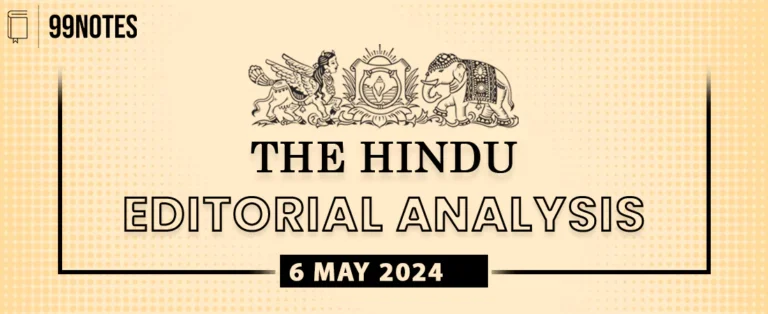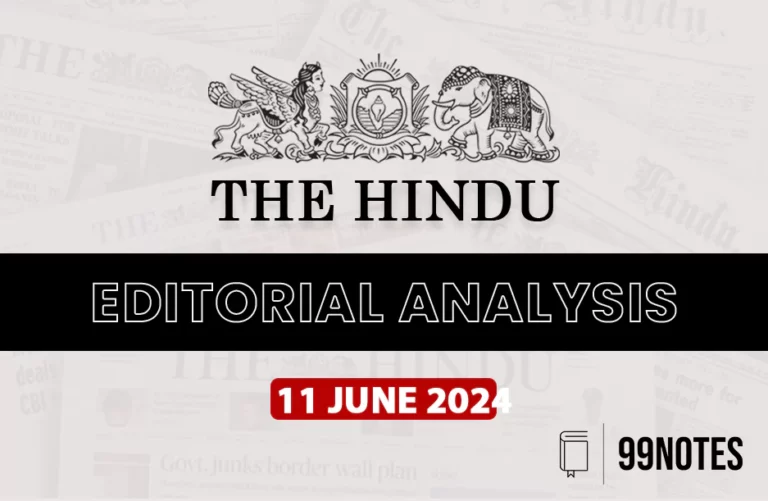5 June 2023 : The Hindu Editorial
THE HINDU EDITORIAL
5-June-2023
Daily Current Affairs For UPSC ,The Hindu Editorial Summary
1. Courts should be wary of incremental steps to alter status of places of worship
Topic: GS2 – Indian polity.
Context:
-
-
-
The Allahabad High Court has ruled that a suit filed by five women to offer worship to Hindu deities at the Gyanvapi Mosque in Varanasi is maintainable.
-
The court upheld a district court verdict and held that the suit is limited to enforcing the plaintiffs’ right to worship Hindu deities and is not an attempt to convert the mosque into a temple.
-
-
Issue:
-
-
-
The court ruled that the suit is not barred by the Places of Worship (Special Provisions) Act, 1991, which froze the status of places of worship as they stood on August 15, 1947.
-
Concerns are raised about the court’s ruling potentially legitimizing a clever attempt to question the status of the Gyanvapi Mosque and laying the foundation for a future claim on the mosque.
-
The plaintiffs claim that Hindu deities were worshipped at the mosque precincts before and after August 15, 1947, and that daily worship was conducted until 1990, after which it was suspended and limited to a single day each year.
-
The court rejects the objection that the suit is an attempt to change the mosque’s status but notes that the plaintiffs question whether the mosque was built on Wakf property and assert that property vested in the deity would remain even if the structure was destroyed.
-
It is concerning if the suit leads to incremental or creeping changes to the status of the mosque, undermining the customary right of worship.
-
-
2. The Delhi ordinance is an unabashed power-grab
Topic: GS2 – Indian polity.
Context:
-
-
-
The Union government promulgated an ordinance to amend the Government of National Capital Territory of Delhi (NCTD) Act, 1991, nullifying a Supreme Court judgment on bureaucratic appointments in Delhi.
-
-
Issue:
-
-
-
The ordinance removes the control of “services” from the Delhi government and establishes a National Capital Civil Service Authority to decide on service matters in Delhi, with two Union-appointed bureaucrats having the power to overrule the Chief Minister.
-
If a disagreement arises between the Authority and the Lieutenant Governor, the LG’s decision prevails.
-
The ordinance raises legal and political questions about federalism, democracy, bureaucratic accountability, executive law-making, and judicial review.
-
Opposition parties, except for Congress, have supported the Aam Aadmi Party government in opposing the ordinance.
-
Delhi’s position in India’s federal constitutional scheme is unique, and the Supreme Court had previously recognized its “sui generis” status.
-
The Court used the concept of asymmetric federalism to clarify Delhi’s position, noting that the insertion of Article 239AA created an “asymmetric federal model” for Delhi, making it a federal entity.
-
The Court’s judgment highlighted the interlinkage between federalism and democracy and the different priorities of the central and state governments.
-
The presidential ordinance is problematic as it undermines judicial independence, violates norms of executive law-making, and assaults federalism and democracy.
-
Opposition parties’ response to the ordinance raises concerns about the lack of consistent support for federalism as a counter-hegemonic idea.
-
A new politics of federalism is needed to protect India’s constitutional foundations and articulate the values of federalism consistently.
-
-
3. Spare the rod and change the law
Topic: GS3 – Health sector.
Context:
-
-
-
The Director General of Health Services (DGHS) issued an order on May 12, reiterating the directive for doctors in Central government hospitals to prescribe only generic medicines instead of branded drugs.
-
-
Issue:
-
-
-
The assumption behind this directive is that doctors receive kickbacks from pharmaceutical companies for prescribing branded drugs, and prescribing generics will save costs for patients.
-
However, many Indian doctors, both in the public and private sectors, do not trust the quality of all generic medicines in the Indian market.
-
India has lagged behind countries like the U.S. in creating legal and scientific standards for ensuring the interchangeability of generic medicines with innovator drugs.
-
India mandated bio-equivalence testing for generic drugs in 2017, but the regulations were vague, and existing generic drugs approved prior to 2017 were not tested.
-
Lack of bio-equivalence testing means that the government cannot guarantee that all generic medicines in the Indian market are interchangeable with innovator drugs.
-
Stability testing is another significant issue with generic medicines in India, and the regulations for mandatory stability testing were implemented only in 2018, not applying retrospectively to generic drugs approved before that.
-
The lack of quality assurance measures undermines doctors’ trust in generic drugs, and therefore, it is not appropriate for the DGHS to force doctors to prescribe drugs by generic names.
-
The DGHS should address the genuine concerns raised by doctors and work towards building their confidence in generic medicines by implementing regulations that require pharmaceutical companies to indicate if a drug has been tested for bio-equivalence and stability.
-
Fostering trust in generic medicines among doctors would serve the public interest better than threatening punitive action for non-compliance with directives on mandatory prescription of generic drugs.
-
-
4. Citizen activism that is missing from the wrestling ring.
Topic: GS2 – civil society.
Context:
-
-
-
Nationally acclaimed wrestlers have been protesting against their federation chief, accusing him of misusing his authority and sexual harassment.
-
-
Issue:
-
-
-
The protests failed to mobilize civil society opinion and lacked the support seen in previous citizen activism movements like the Nirbhaya protests and Anna Andolan.
-
Middle-class rooted ‘citizen activism’ in India has a narrow moral universe and gained currency post-liberalization through television and social media.
-
Historically, middle-class activism in India was vibrant during the colonial period, characterized by an associational culture involving socio-economic initiatives by urban elites from different social classes.
-
Middle-class participation in civil society decreased from the Nehruvian era as they gained control over power networks in the state-centered political economy.
-
Civil society in India is often based on caste, community, and other segmental loyalties, which some scholars view as hindering the development of a modern civil society.
-
The rise of urban, middle-class activism was observed during the United Progressive Alliance rule, driven by discontent with corruption and mass-based politics.
-
Populist, personality-driven activism like the Anna Andolan and Narmada Bachao Andolan faced limitations and ultimately fell short of their objectives.
-
Popular mobilization and activism still exist in a circumscribed space, demonstrated by labor rights organizations in Tamil Nadu and the farmers’ agitation.
-
However, these organizations also have inherent limitations and may be associated with specific caste or class interests, which can hinder broader programmatic solidarity.
-
Looking beyond superficial, celebrity-dependent activism and focusing on building durable, programmatic solidarities is necessary for effective civil society activism in India.
-
-
For Enquiry
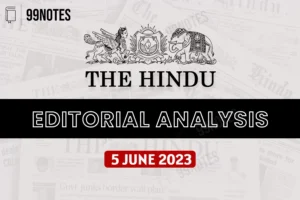
5 June 2023 : The Hindu Editorial
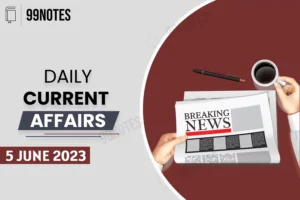
5 June 2023 : Daily Current Affairs
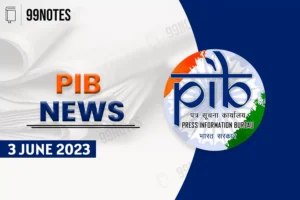
3 June 2023 : PIB
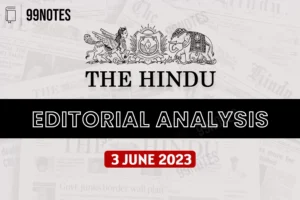
3 June 2023 : The Hindu Editorial
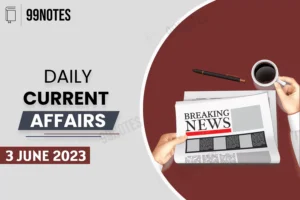
3 June 2023 : Daily Current Affairs
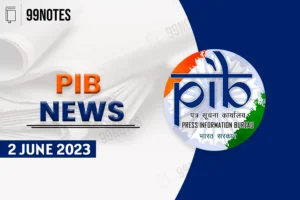
2 June 2023 : PIB
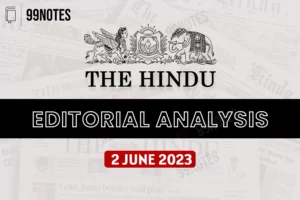
2 June 2023 : The Hindu Editorial

2 Jun2 2023 : Daily Current Affairs
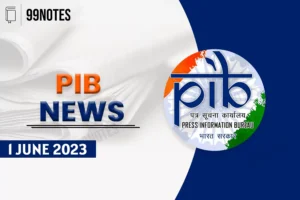
1 June 2023 : PIB
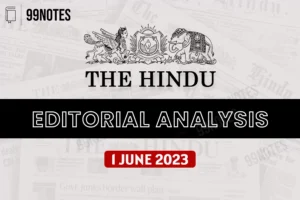
1 June 2023 : The Hindu Editorial
The Hindu 5 June 2023 : The Hindu Editorial The Hindu Editorial
12-May-2023
Daily Current Affairs For UPSC ,The Hindu Editorial Summary
Facebook-f
Twitter
Youtube
1.Marriage…
Daily Current Affairs 5 June 2023 : Daily Current Affairs DAILY CURRENT AFFAIRS
5-June-2023
Daily Current Affairs For UPSC ,Daily Current affairs of The hIndu…
PIB 3 June 2023 : PIB PRESS INFORMATION BUREAU
3-June-2023
Daily Current Affairs For UPSC ,The PIB ( Press Information Bureau…
The Hindu 3 June 2023 : The Hindu Editorial The Hindu Editorial
3-June-2023
Daily Current Affairs For UPSC ,The Hindu Editorial Summary
Facebook-f
Twitter
Youtube…
Daily Current Affairs 3 June 2023 : Daily Current Affairs DAILY CURRENT AFFAIRS
3-June-2023
Daily Current Affairs For UPSC ,Daily Current affairs of The hIndu…
PIB 2 June 2023 : PIB PRESS INFORMATION BUREAU
2-June-2023
Daily Current Affairs For UPSC ,The PIB ( Press Information Bureau…
The Hindu 2 June 2023 : The Hindu Editorial The Hindu Editorial
2-June-2023
Daily Current Affairs For UPSC ,The Hindu Editorial Summary
Facebook-f
Twitter
Youtube…
Daily Current Affairs 2 Jun2 2023 : Daily Current Affairs DAILY CURRENT AFFAIRS
2-June-2023
Daily Current Affairs For UPSC ,Daily Current affairs of The hIndu…
PIB 1 June 2023 : PIB PRESS INFORMATION BUREAU
1-June-2023
Daily Current Affairs For UPSC ,The PIB ( Press Information Bureau…
The Hindu 1 June 2023 : The Hindu Editorial The Hindu Editorial
1-June-2023
Daily Current Affairs For UPSC ,The Hindu Editorial Summary
Facebook-f
Twitter
Youtube…


